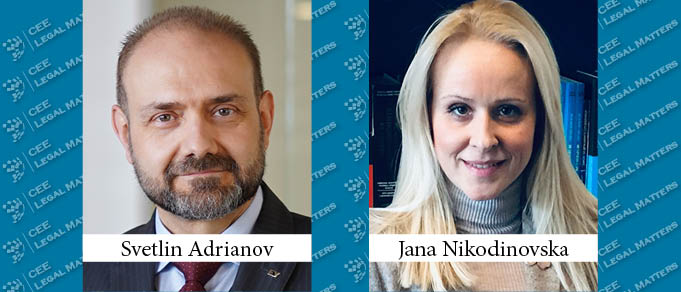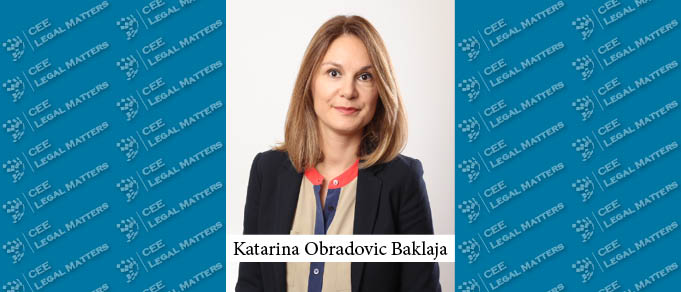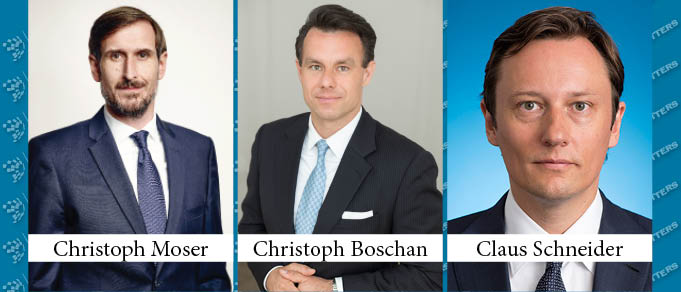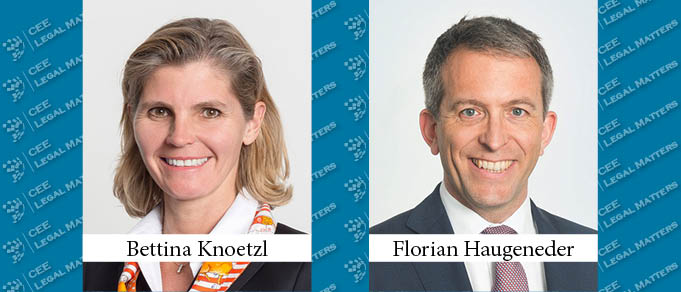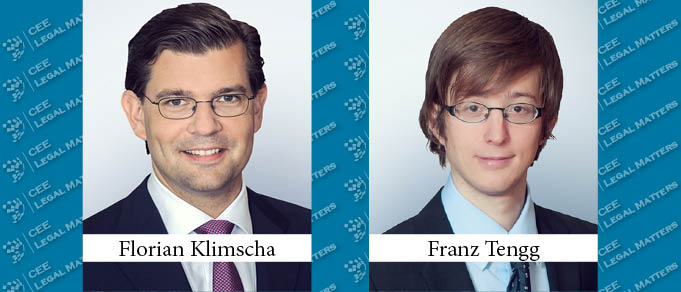Due to Germany’s economic importance and its strategic position at the heart of Europe, it certainly rings true to many Czech motor carriers that (almost) “all roads lead to Germany.” The dependence on the vagaries of German toll policy, however, have forced Czech motor carriers to swallow two bitter pills in the past four years. First, back in July 2018, the German government extended tolls to all federal roads, which led to some 40,000 kilometres of roads now being part of the toll system.
Good Climate for PPP in Poland
The coronavirus pandemic and accompanying restrictions introduced by the majority of countries around the world are having a major impact on the development of global and local economies. It seems that carrying out infrastructure investment projects may help with rebuilding the economic and financial condition of countries negatively affected by the coronavirus.
North Macedonia: Transport and Infrastructure – Sector of Expansion
The year of 2020 was marked, in North Macedonia as elsewhere, by the COVID-19-induced economic crisis, which will obviously extend well into 2021. Despite the high hopes that the pandemic would be brought under control with mass vaccination programs, the North Macedonian economy’s return to pre-Covid status within the current year is highly unlikely.
Transportation and Infrastructure in Hungary
In any economy transport infrastructure is vital for enabling the flow of goods and people. Two salient features of the transport environment in Hungary are the country’s location “between East and West” and, within the country, the significant work which has been done to develop the motorway network. Many of the issues referred to below can be traced back to one or both those factors.
Transportation and Infrastructure in Montenegro – Struggle in a Time of Crisis
Despite its diverse terrain and impassable regions, Montenegro has made remarkable progress in developing its infrastructure and transport network over the last couple of years.
Romania: Europe’s Eastern Transportation Hub
The development of Romania’s infrastructure must make smart use of the EUR 30 billion anticipated from EU’s Recovery and Resilience Facility, as the expansion and modernization of Romania’s transport infrastructure are of paramount importance not only for the country, but for the entire EU, given Romania’s geo-strategic position at Europe’s maritime borders with Asia.
Development of Transportation Infrastructure a Priority for Serbia
The development of infrastructure has been a long-standing priority in Serbia. The National Investment Plan (Serbia 2025) announced by the Serbian Government in December 2019 anticipated the allocation of approximately EUR 14 billion to major development projects to be completed by 2025. Most of the funds are to be allocated for infrastructure projects, including road, rail, air, and water upgrades.
A Lasting Legacy: The Vienna Stock Exchange Celebrates its 250th Anniversary
The Vienna Stock Exchange was founded in 1771, during the reign of Empress Maria Theresa. Initially launched as a market for state-issued bonds – only bonds, bills of exchange, and foreign currencies could be traded – it expanded rapidly. In 1818, the Austrian central bank – which had itself been founded only two years earlier – became the first joint-stock company to be listed on the exchange (and one of the first shareholders was Ludwig van Beethoven, who bought eight shares in 1819). In 1863, the Suez Canal Company had become the first foreign company to be listed on the Vienna Stock Exchange, and in 1865, there was a further foreign listing with premium bonds issued to fund Turkish railway lines (“Turkenlose”). When the Frankfurter Bankverein applied for a listing of the Turkenlose bonds on the VSE, the Exchange Chamber decided to introduce rules for the admission of foreign securities, and thus, in 1873, the “Italian bond” became the first official foreign listing by means of a formal application. In December 1997, the Vienna Stock Exchange Chamber was merged with the Austrian Futures and Options Exchange to form a new exchange operating company, Wiener Borse AG, and in subsequent years the business spectrum of the Vienna Stock Exchange broadened to include market data dissemination and index calculation as well as IT services and central securities depository services.
Guest Editorial: The Legal Market in Austria During a Pandemic
The global COVID-19 crisis has led to a significant change in the field of M&A, both in Austria, and worldwide. In my more-than-twenty years of experience, I have not seen anything change the Austrian legal market so incredibly. Starting in March 2020, as a first step, several transactions in Austria were at least temporarily put on hold. As a result, the total number of transactions decreased in 2020. However, this trend was not unique to Austria, but represents a worldwide paradigm shift caused by increased uncertainty about the future of business.
The Long Path to Paradise: Hungarian Lawyer Agnes Molnar Follows Her Muse Across the World
Starting from modest beginnings in the small Hungarian city of Eger, Agnes Molnar’s career has taken her across the world, from small local law firms to the Magic Circle, from state entities to global banks, and from Budapest to London to Vienna to Montreal. Now, some 10,000 kilometers away from her home country, she is a Partner at Travers Thorpe Alberga in the Cayman Islands. If, as the Chinese proverb has it, a journey of a thousand miles begins with a single step, Molnar is already half-way there.
The Pontes Perspective on CEE
The COVID-19 crisis continues to plague much of Europe. To get an overview of its effects across CEE – both on investment in the region and on the legal industry itself – we reached out to the members of Pontes the CEE Lawyers legal alliance, a Regional Sponsor at the upcoming Dealer’s Choice International Law Firm Summit.
Trends and Developments – Handling Disputes in Times of COVID Pandemic
As does every crisis, the COVID-19 pandemic has created an influx of high-profile litigation matters. A significant disparity has emerged during the crisis: Larger litigation departments – like our firm – are extremely busy, while some solo practitioners are suffering severely from the economic downturn.
The Unpredictable
The first rumors of a new infectious disease outbreak in late December 2019 initially only drew modest attention. Soon it became clear that the world had underestimated the spreading pandemic, and, despite Austria’s distance from the region of origin in Asia, by March 2020, the spread of COVID-19 in Europe had become a focus of concern. As hospitals struggled to deal with increasing numbers of coronavirus cases, governments throughout Europe – including Austria – imposed lockdowns that brought society as we know it to an abrupt halt. Overnight, European cities became ghost towns, with shops and services shuttered. Revenues vanished and, through no fault of their own, businesses had to face a difficult financial reality.
Old Concepts Revisited for New Locations: Building Rights for Logistics Companies In Austria
Austria – in particular Vienna, the capital and second largest German speaking city in the world, as well as Linz and Graz – is conveniently placed at crossroads of international trade routes providing excellent access to major European economies in all four directions.
Relocation to Austria Opens Interesting Possibilities
Lately, the effects of COVID-19 have caused a significant surge in interest by high net-worth individuals (HNWIs) on global migration, as political stability and safety, access to well-functioning healthcare and education systems, and the ability to maintain a high standard of living became even more important.
Developments in the Serbian Energy Sector
The Ministry of Mining and Energy of the Republic of Serbia has recently concluded a period of public debate on a package of amendments to the country’s energy laws. The draft law that has attracted the most attention certainly is the Law on Renewable Energy Sources (the “RES Draft Law”), but there is also a Draft Law on Energy Efficiency and Rational Energy Use (the “EE Draft Law”). Serbia already has laws governing this subject matter– renewable energy sources and rational use of energy – which raises a question about what has influenced the Ministry to propose that these two areas be governed in more detail in the future.
Inside Insight: Pascale Rahman, Vice President & General Counsel EMEA and India at Flex
Interview with Pascale Rahman, Vice President & General Counsel EMEA and India at Flex about her background and best practices.
Expat on the Market: Interview with Marcell Nemeth of Wolf Theiss
An interview with Marcell Nemeth of Wolf Theiss, about his path from Budapest to Vienna.



